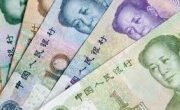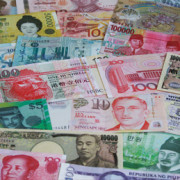Tag Archives | Yen
Finance sector development
 Finance sector development
Finance sector development

Can internationalization of the renminbi succeed where internationalization of the yen failed?

Since the second half of the 1990s, Japan has tried to promote the use of the yen as an international currency but has made little progress so far. Now, following in Japan’s footsteps, the People’s Republic of China (PRC) is promoting the internationalization of the renminbi. It would do well to consider why Japan’s attempt at internationalizing the yen has failed. Until the Asian financial crisis in the second half of the 1990s, Japan was reluctant to promote the internationalization of the yen, fearing that capital flows could destabilize the economy and render monetary policy ineffective, a problem widely considered to be the major cost for a country promoting the international use of its currency.
Fostering exchange rate coordination: the role of an Asian Currency Unit

Over the past few decades East Asia has become increasingly intertwined economically as the share of interregional trade in total trade has increased sharply across most economies, driven by regional supply chains and production networks. These production networks have also fostered greater investment links, with the production process being broken down into subprocesses within a particular industry. The high degree of economic integration indicates that there may be a case for exchange rate coordination, as exchange rate misalignments may result in loss of competitiveness for a country, possibly leading to an increase in protectionism, which in turn could promote a round of beggar-thy-neighbor devaluations. Large swings in bilateral exchange rates could influence decisions about the location of new and existing investments. In contrast, greater stability in exchange rates would support investment by increasing price transparency and reducing currency-related hedging costs for companies. Finally, sharp exchange rate movements in one currency could affect another country’s ability to maintain a particular exchange rate regime.


Search
Subscribe / Connect to Asia Pathways
Subjects
- Accelerating Progress in Gender Equality
- Addressing Remaining Poverty and Reducing Inequality
- Agriculture and natural resources
- Capacity development
- Climate change
- Economics
- Education
- Energy
- Environment
- Finance and Innovation
- Finance sector development
- Gender
- Globalization and Economic Stability
- Governance and public sector management
- Health
- Industry and trade
- Information and Communications Technology
- Infrastructure
- Making Cities More Livable
- Miscellaneous
- Population
- Poverty
- Private sector development
- Regional cooperation and integration
- Sanitation
- Social development and protection
- Strengthening Governance and Institutional Capacity
- Subjects
- Transport
- Uncategorized
- Urban development
- Video Blog
- Water
Recent Posts
- From Crisis to Resilience: The Evolution of the Banking Sector in Asia and the Pacific
- Tariffs on the Table: What Could Be Asia’s Next Move?
- Investing in Childcare a Win for Women and the Economy
- Flush and Flourish: Upgraded Toilets Can Transform Lives in Rural Asia
- New Ways for Climate Finance and Development in Asia and the Pacific




Recent Comments